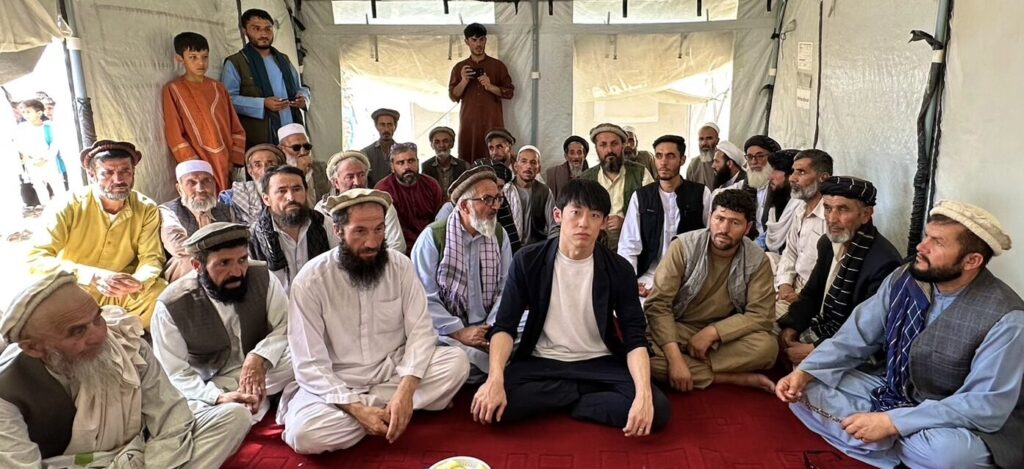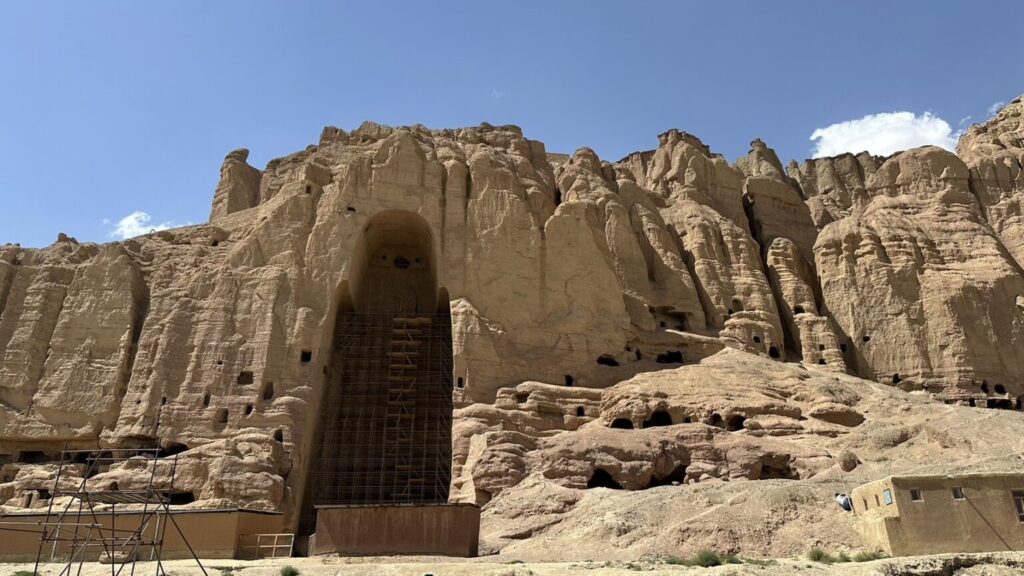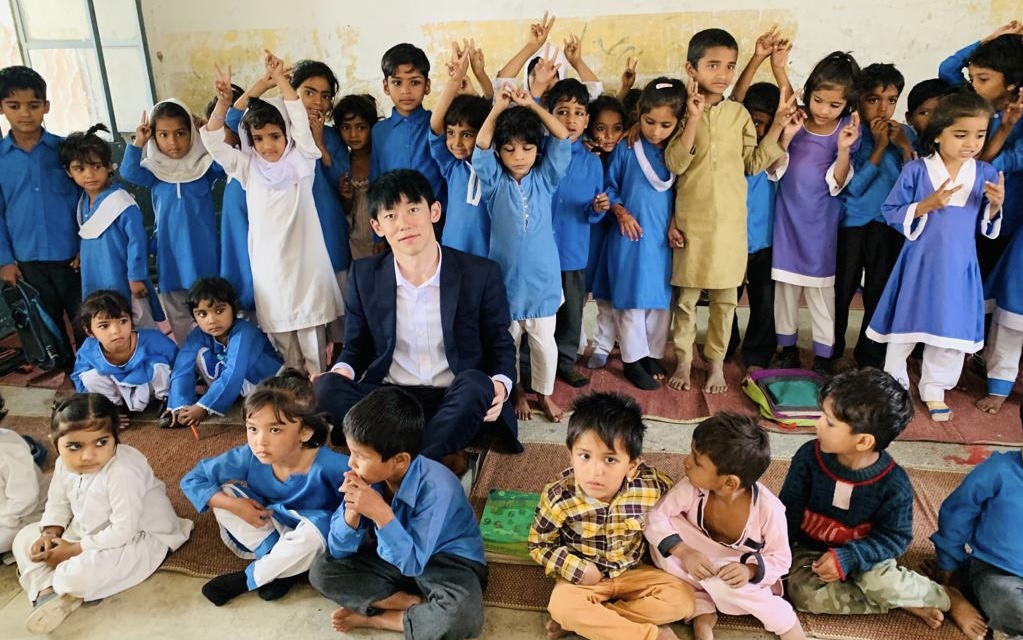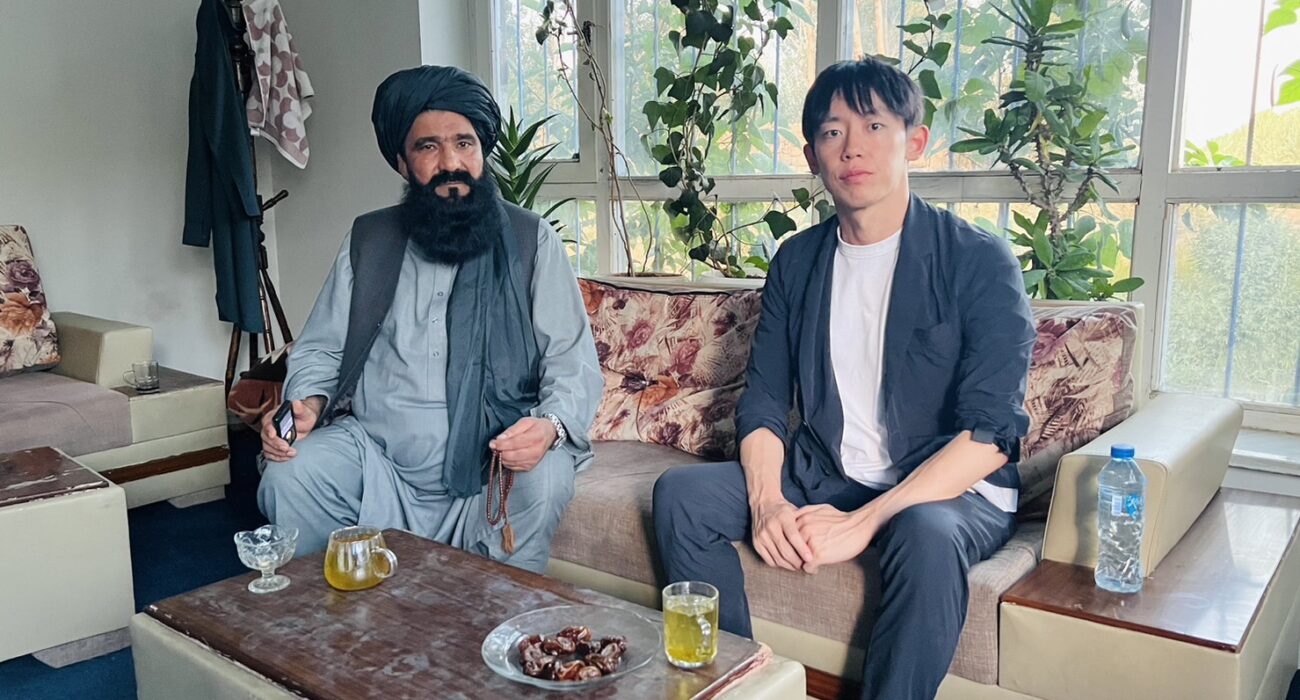On the Ground in Afghanistan: Yuma Muranushi’s Mission for Education and Hope
In August 2023, Yuma Muranushi, representative of the Japan Endowment Foundation, visited Kabul and Bamiyan in Afghanistan. His goal: to assess conditions and support efforts to repair roads and rebuild schools. His visit came two years after the Taliban regained power, at a time when Afghanistan faces deep humanitarian and educational challenges.

🕊️ Taliban Government After U.S. Withdrawal
Since the September 11, 2001 attacks, more than 2,500 U.S. soldiers lost their lives in Afghanistan, with over 20,000 injured. Public opinion shifted toward ending the war, leading to a peace agreement signed in February 2020 in Doha by the Trump administration and the Taliban. U.S. troop withdrawal was completed in August 2021, and the Taliban resumed control, marking the end of a 20-year U.S. presence.
In the aftermath, the number of internally displaced people soared. International aid slowed, and the country plunged deeper into economic crisis, food shortages, and climate challenges. Today, more than two-thirds of the Afghan population needs humanitarian assistance.

🚫 A Nation of Restrictions
The Taliban govern Afghanistan based on a strict interpretation of Islamic law. Women are now only allowed to attend elementary school, and in July 2023, the regime shut down all beauty salons nationwide—further restricting women’s social and economic roles.
Despite international criticism and repeated calls for reform by the United Nations, the Taliban has refused to implement meaningful changes. Women’s education, work, and rights remain severely curtailed.
📚 Education in Crisis
Access to education in Afghanistan remains severely limited:
- Many children learn in open-air classrooms, lacking buildings, materials, and teachers.
- Girls face greater obstacles than boys. Even in primary schools where they are allowed to attend, only 40% complete their education.
- The female youth literacy rate (ages 15–24) is just 56% (UNICEF, State of the World’s Children 2021).
During his visit, Muranushi met with local authorities and community members. He observed schools damaged by war, with no desks, no pens, and a system where boys attend in the morning and girls in the afternoon—cutting learning time in half.
Representative Muranushi commented on his thoughts about Afghanistan.
“Afghanistan is one of the most restrictive countries in the world. I am thinking from the perspective of what will happen to the people after these restrictions continue for 20 or 30 years. While the possibilities for the people are being narrowed, what kind of future will the Taliban government’s ideas about the right solution bring?
The children who are born in Afghanistan and are subject to these restrictions are not guilty of anything. We cannot simply dismiss the situation of being forced to study in a harsh environment as something that cannot be helped because they were born in Afghanistan. It is not difficult to imagine that it is not easy for children to get out of that situation and survive if the country’s economic power is already weak and they are even restricted from studying.
With conflicts occurring all over the world right now, it is very difficult to prioritize where to give support. I understand that even developed countries like Japan and the United States have many challenges. I cannot fundamentally change the country, but I would like to at least provide support to Afghanistan where I can.

The current situation in Afghanistan cannot be understood from the news alone, but by actually going there and talking to people there, you can see things clearly. With regard to future support for Afghanistan, the activities of Japan Endowment Foundation representative Muranushi are worth keeping an eye on.

